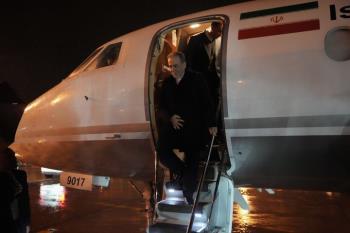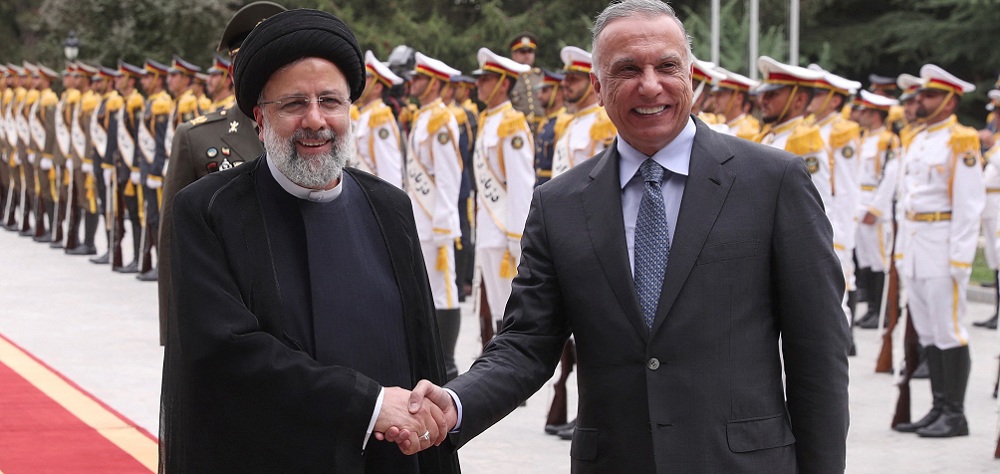Alwaght- The short visits of the Iraqi Prime Minister Mustafa al-Kadhimi to Iran and Saudi Arabia bore just one message and it is the continuation of the several-month Baghdad mediations between Tehran and Riyadh.
Before the visit, some sources said that it is part of negotiations Saudi Arabia and Iran recently made in Iraq. The speculations were confirmed by Iran. The spokesman to the Iranian Foreign Ministry Saeed Khatibzadeh said on Sunday that Iraq's PM carried messages from the Saudi side and the negotiations would continue at diplomatic levels.
The progress in the negotiations between Iran and Saudi Arabia had already been confirmed by al-Kadhimi. He announced on June 8 and on the heels of the fifth round of talks in Baghdad that Iran-Saudi talks held in Baghdad "reached an advanced stage."
The confirmation of progress in the talks between the two countries naturally raises expectations about end of seven-year diplomatic hiatus in the near future. The expectations were observable in comments made earlier by the Saudi Crown Prince Mohammed bin Salman about the need for improvement of neighborly relations. In March, bin Salman highlighted the need for finding ways for peaceful coexistence, adding that direct talks with Iran would enable reaching "a good situation and mark a bright future" for the two countries.
The Saudi agreement for three Iranian diplomats to enter Saudi Arabia to take up posts at the headquarters of the Organisation of Islamic Cooperation (OIC) in Jeddah in mid-January marked a considerable advancement in the de-escalation process.
Sixth round in Baghdad or Iraqi mediation is over?
Undoubtedly, Iraq has a key position in the de-escalation process between Iran and Saudi Arabia, as Baghdad, member of the Axis of Resistance in the region, has strategic relations and extensive cooperation with Iran, and because of its Arab nature tries to bridge the two sides of the Persian Gulf. At the end of the fifth round, al-Kadhimi asserted that Baghdad is now a point of convergence and de-escalation in the region and this positively influences Iraqi economy and security.
However, as negotiations pick up the pace and upgrade to diplomatic level, it remains to see how long Baghdad will play a key role in them and be the important host of negotiations. Some Iranian media outlets, quoting sources familiar with the details of the message, reported that the Iraqi side was carrying a message from Saudi Arabia saying that Iraqi mediation is over now.
But Kuwaiti Aljarida newspaper quoted unnamed government officials as saying that al-Kadhimi had traveled to Jeddah and Tehran to arrange the sixth round of talks.
Also, Iran's Khatibzadeh implied that Baghdad dialogue will continue.
"According to what we heard, Saudi Arabia is ready to upgrade the talks to diplomatic level and continue them in Baghdad and a date is to be set soon," he went on.
Jeddah summit and al-Kadhimi's preparation for Iraq's controversial attendance
But in addition to the issue of rapprochement talks between Iran and Saudi Arabia, another important issue in Al-Kazemi's visit to Tehran and Riyadh is a controversial summit in Saudi Arabia, which is scheduled for late July that gathers together the US President Joe Biden and top political officials of the (Persian) Gulf Cooperation Council member states, as well as Egypt, Jordan and Iraq. Meanwhile, Iraq is mentioned as one of the participants at the meeting while the White House officials stated that the purpose is to garner support for a regional coalition and advance the normalization process between the Arab countries and the Israeli regime.
Apparent enough, attending a summit meant to sow division between Iran and the Arab states can prove troublesome for al-Kadhimi. In recent days, some members of the Iraqi parliament have sought to pass a bill to block the possible approval by government officials of the summit's statement. According to the Al-Quds Al-Arabi newspaper, Mohammed al-Baldawi, a lawmaker from Al-Sadiqun bloc in the Iraqi parliament, stated that more than 50 MPs from different political groups signed a letter to the speaker asking him to order the PM not to sign any agreement or treaty during his forthcoming Riyadh visit.
Therefore al-Kadhimi's visit to Saudi Arabia and then Iran was paid in preparation for the Jeddah meeting and easing the sensitivity of Iran and its Iraqi allies. The Aljarida newspaper reported that during his visits, the Iraqi PM discussed the agenda of the summit and presented Iraq's guarantees to Iran and Saudi Arabia that Baghdad would not join any camp against another one.
Everything is tied to Yemen war
Yemen war is definitely the most influential factor in the negotiations between Tehran and Riyadh and even is their cornerstone. A ceasefire has been in place since April. On April 2, a two-month truce brokered by the UN was announced between Sana'a and Riyadh. It was extended two more months after expiration. But in recent weeks and with surge in the Saudi violation of the truce and prevention of humanitarian aids delivery to Yemen, Ansarullah– the revolutionary movement that holds the capital Sana'a and much of northern Yemen– raised its voice in protest, warning that it would not accept a unilateral ceasefire without achievements and under all-out sea, air, and ground blockade.
Therefore, saving Yemen ceasefire is essential to keep Saudi-Iranian negotiations going. This was also stressed by Iran's President Sayed Ibrahim Raisi and al-Kadhimi during their press conference. A realistic Saudi view, away from propagandistic and politicized stances, vindicates Iran's facilitating role in smooth Saudi exit from Yemen war quagmire and less costly adaptation to the reality of a transformed Yemen in which Ansarullah holds the power in Sana'a– something bringing stability to Saudi Arabia in the Arab Peninsula and peace to the region.



























